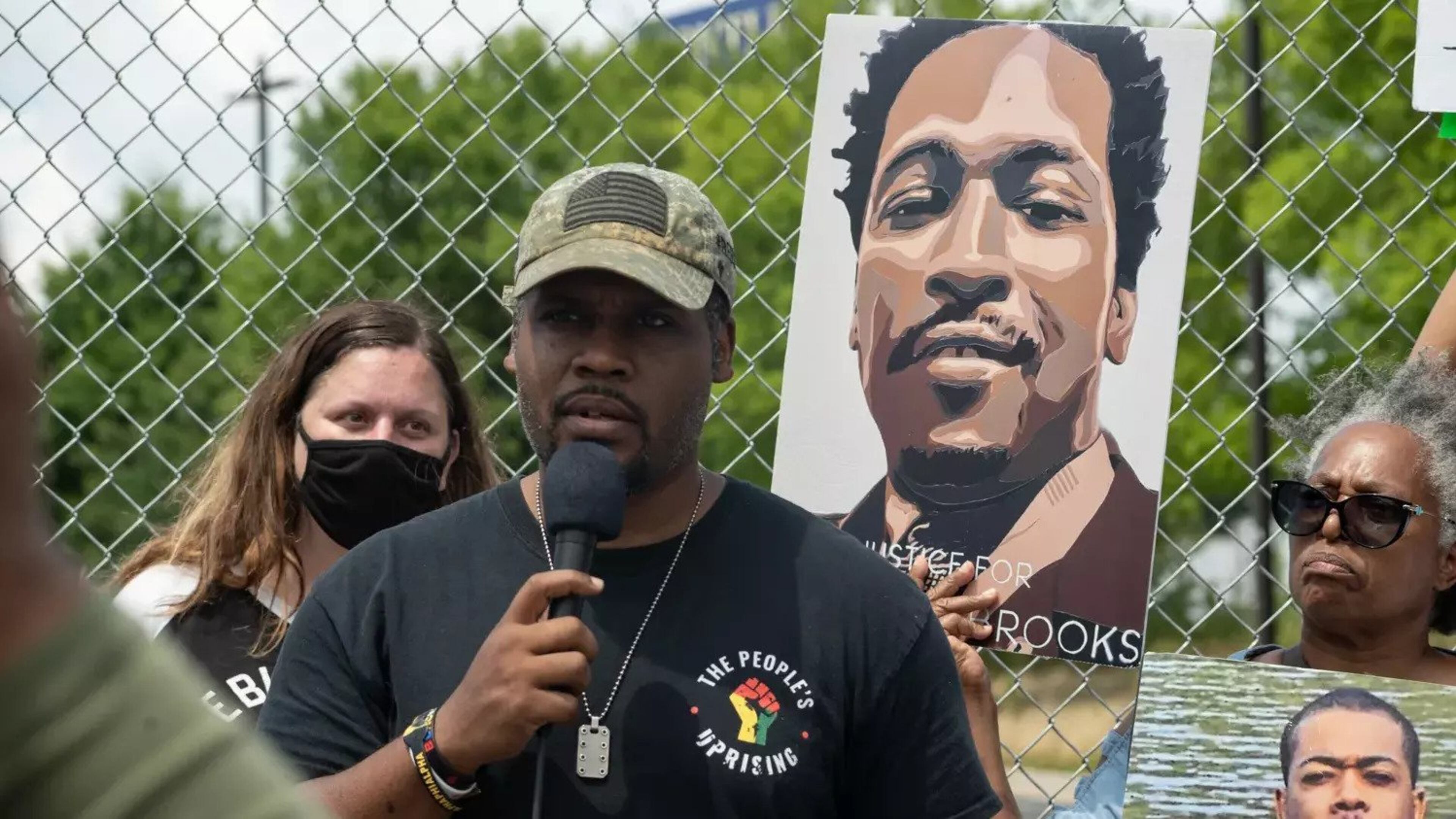Atlanta has a new NAACP president. Here are his top priorities.

This story was originally published by Capital B Atlanta.
Securing justice for police brutality victims is among the top priorities for Atlanta’s next NAACP chapter president, attorney Gerald Griggs, who announced his ascension to the role on Twitter earlier this month.
Griggs, 45, took over a day after the chapter’s former leader, Richard Rose, announced he was stepping down. As the chapter’s first vice president, Griggs said he was automatically promoted as Rose’s successor to finish the term, which is scheduled to end in October 2024.
A practicing defense and civil rights attorney, Griggs also currently serves as president of Georgia’s state NAACP. He has been in that role since April 2022 and says he plans to continue serving in both jobs.
“We will continue the legacy of activism that was started by president Rose and so many others in the Atlanta NAACP,” Griggs said. “You can expect the NAACP to continue to be the voice of minority groups, particularly African Americans, as we push for equity, equality, and push back on racial intolerance and discrimination.”
While laying out his priorities, Griggs mentioned Jimmy Atchison, Vincent Truitt and Rayshard Brooks as the cases of alleged police brutality that he’s most focused on.
In Brooks’ shooting death, criminal charges against officers Garrett Rolfe and Devin Brosnan were dropped about a year ago. Brosnan has left the department, but Rolfe is still an employee, according to APD public affairs director Chata Spikes.
“Let the Fulton County grand jury determine whether or not the former officers who now are back on the force were liable for the shooting death of Mr. Brooks,” Griggs told Capital B Atlanta.
During his presidency, Griggs said he also plans to prioritize gaining economic investment in underserved communities across the city and battling racism in all its forms.
Rose, who recently celebrated his 75th birthday, said he decided to step down partly due to health reasons after being hospitalized with sepsis in December and again in January due to internal bleeding.
He also wants to focus more on running his National Coalition to End the Confederacy nonprofit, which advocates for the elimination of Confederate monuments across the nation, and his Communities United for Justice political action committee, which lobbies in favor of political, racial, environmental, health, and economic justice at the local, state and federal levels.
Doctors advised him “to take some of the stress off of my plate, and so I’ve done that,” Rose said. “I’ve done that with my business, hired a couple of new CPAs to take my load, and [I’m] just reordering my life.”
Rose expressed skepticism that someone can lead both the Atlanta chapter and the state NAACP.
“If I were him, I wouldn’t do it, but he’ll have to make that decision,” Rose said of Griggs. “He has to make some decisions whether he wants to tackle the Atlanta branch along with the state. … He’s a lot younger than I am. He may be up to it.”
Griggs said the Atlanta NAACP chapter is one of the strongest in the state and argued that since Atlanta is the state capital, it makes sense for him to continue leading the NAACP’s state conference as well.
“I think that it’s only fair and correct that if we are one of the most powerful civil rights organizations in the state, that we have a robust, strong presence in Atlanta,” Griggs said. “And the best way to do that is have the state president also be the president of the Atlanta chapter.”
Energizing Black voters
Another of Griggs’ top priorities is increasing voter engagement ahead of the 2024 presidential election. Democratic Party leaders have expressed concerns about a lack of enthusiasm among Black voters ahead of the latest election cycle.
The NAACP is nonpartisan, but Griggs said the issue of Black voter engagement was discussed at the civil rights group’s national conference. He said the organization is one of several that will work to mobilize Black voters ahead of 2024, and that securing “deliverables” for Black voters will be key for Democrats to energize their most loyal voting bloc.
“Without deliverables to that voting bloc, it’s making it very hard to turn out the vote,” Griggs said.
Those deliverables include passing the John Lewis Voting Rights Act, the George Floyd Justice in Policing Act, the successful cancellation of student debt, and substantial economic investment in Black communities, according to Griggs.
“It’s time for Black folks to get deliverables for their vote,” he said. “When that happens, it will be extremely easy for us to continue to do the work to turn out the vote.”
‘Cop City’
Griggs said the NAACP is opposed to the construction of the public safety training center dubbed “Cop City” by opponents, but that’s as far as the organization is going on the matter right now.
He said individual members of the NAACP may be helping to secure the signatures needed to put a referendum on the ballot to allow Atlanta residents to vote for or against the training center, but that the civil rights group’s leaders haven’t decided whether they want the entire organization to join the effort.
“The executive committee has not voted to take that up yet,” Griggs said regarding the training center ballot referendum. “They have voted and have empowered [me] to state that our official position is that [the training center] should not be built. We have not weighed in on the mechanism upon which to achieve that, but we do support the people having a voice in whatever happens.”

MEET OUR PARTNER
Today’s story comes from our partner, Capital B Atlanta, which is part of Capital B, a Black-led, nonprofit local and national news organization reporting for Black communities across the country. Visit them at atlanta.capitalbnews.org or on Twitter @CapitalB_ATL.
If you have any feedback or questions about our partnerships, you can contact Senior Manager of Partnerships Nicole Williams via email at nicole.williams@ajc.com.
